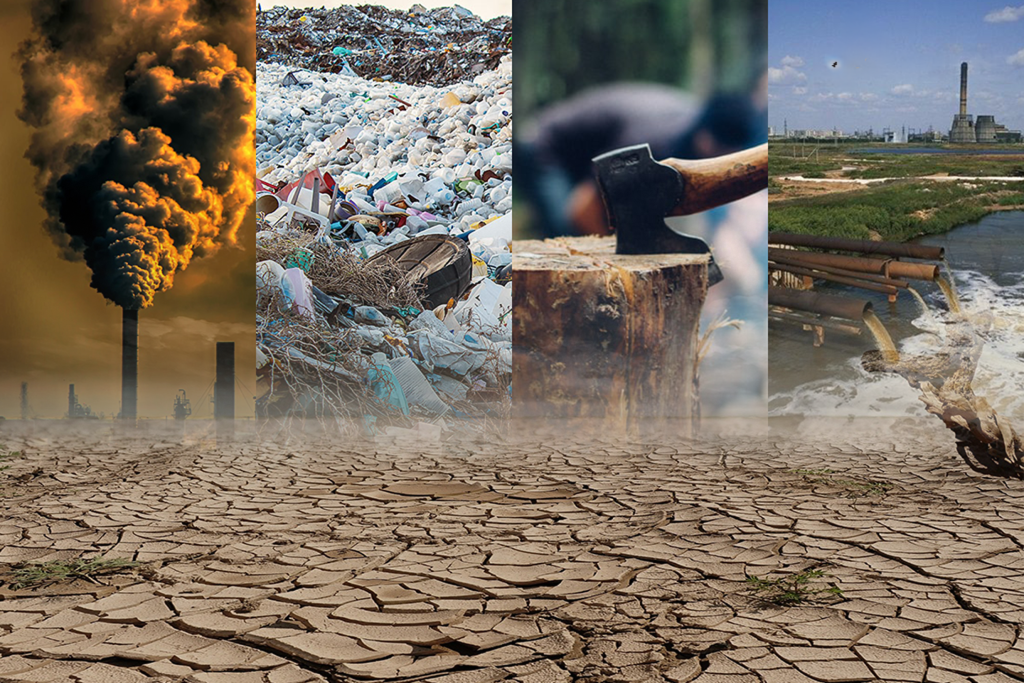Pakistan faces many environmental problems that are now affecting daily life. Rapid population growth, urbanization, and careless use of natural resources have damaged the country’s ecosystem. From polluted air to unsafe drinking water, these issues are harming people’s health and the economy.
This article explains the main environmental challenges in Pakistan, their effects, and what can be done to improve the situation.
Air Pollution
Air pollution is one of the biggest environmental problems in Pakistan, especially in large cities such as Lahore, Karachi, and Islamabad.
- Causes: Vehicle smoke, factory emissions, and open waste burning.
- Effects: Breathing problems, heart diseases, and poor visibility during smog season.
Every year, smog in Punjab disrupts daily life, closes schools, and causes serious health issues.
Water Pollution
Water pollution has become a major concern across Pakistan.
- Causes: Waste from factories, farms, and cities flows untreated into rivers.
- Effects: Contaminated drinking water and the spread of diseases like diarrhea and typhoid.
Experts warn that unsafe water contributes to many health problems in both cities and villages.
Noise Pollution
Uncontrolled noise from traffic, loudspeakers, and construction sites is creating stress and irritation in urban areas.
This constant exposure can lead to headaches, sleep problems, and hearing loss, reducing the overall quality of life.
Climate Change
Pakistan is one of the countries most affected by climate change.
Floods, heatwaves, droughts, and melting glaciers are becoming more frequent.
These disasters damage crops, destroy homes, and force people to move from rural to urban areas in search of safety.
Impacts of Environmental Problems
- Health Issues: More people are suffering from breathing and stomach diseases.
- Agricultural Loss: Irregular weather reduces harvests and harms farmers.
- Economic Burden: Disasters and poor health increase costs for the government and people.
- Water Shortage: Pakistan is moving toward becoming a water-scarce country.
Steps Toward a Cleaner Future
- Strong Environmental Laws
The government should make and enforce strict rules to control pollution and waste dumping.
- Clean Energy Use
Switching to solar and wind power can cut down fuel use and protect the air.
- Better Water Management
Building water treatment plants and using rainwater harvesting can help save water for future use.
- Green Urban Planning
Cities should have more parks, better public transport, and less traffic to improve air quality.
- Public Awareness
People must understand their role in protecting the environment. Campaigns in schools and communities can help create awareness.
Conclusion
Pakistan’s environmental issues can only be solved through teamwork. The government, private sector, and citizens must act together to protect nature and public health.
By using renewable energy, saving water, and keeping cities clean, Pakistan can build a safer and greener future for generations to come.



